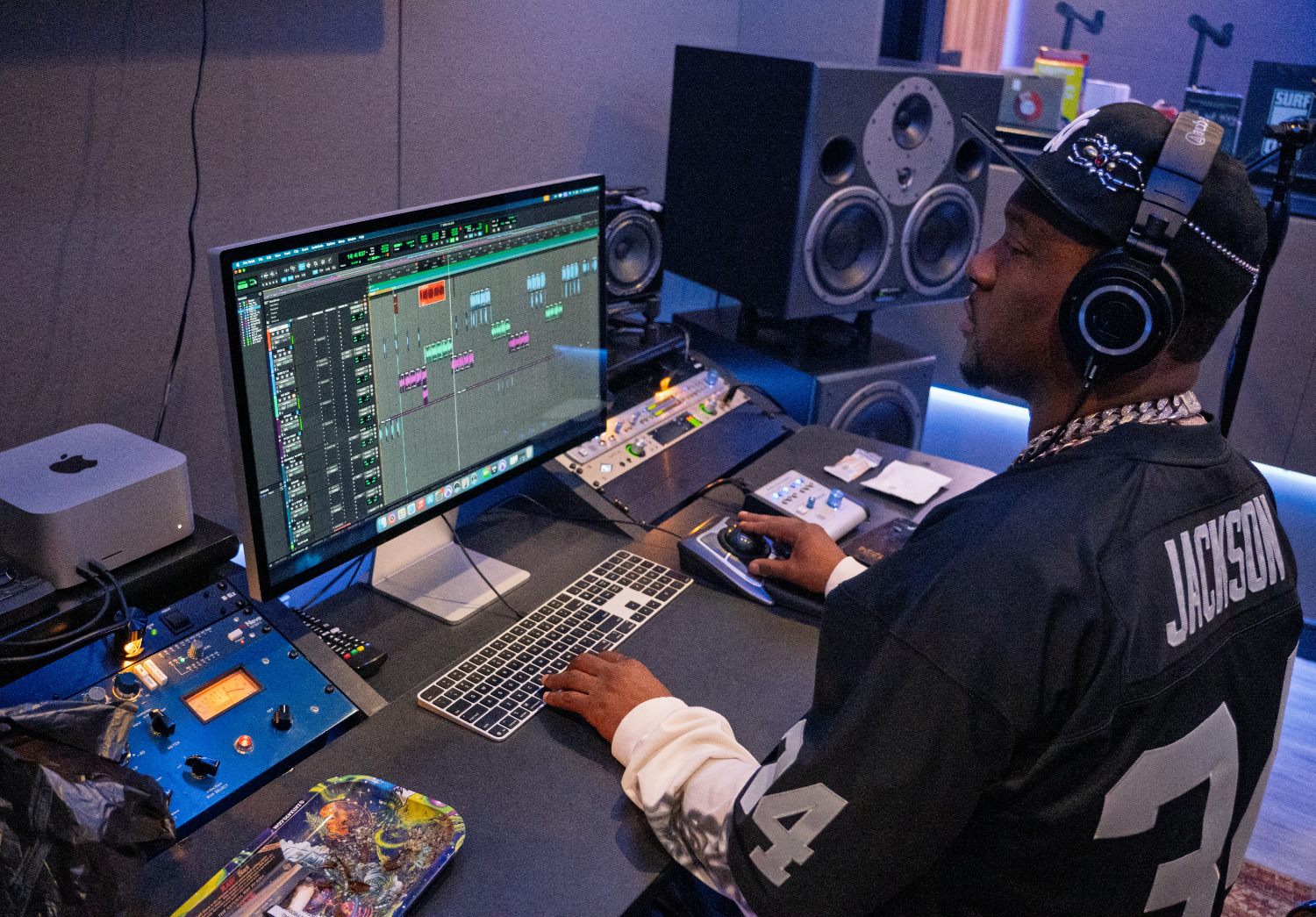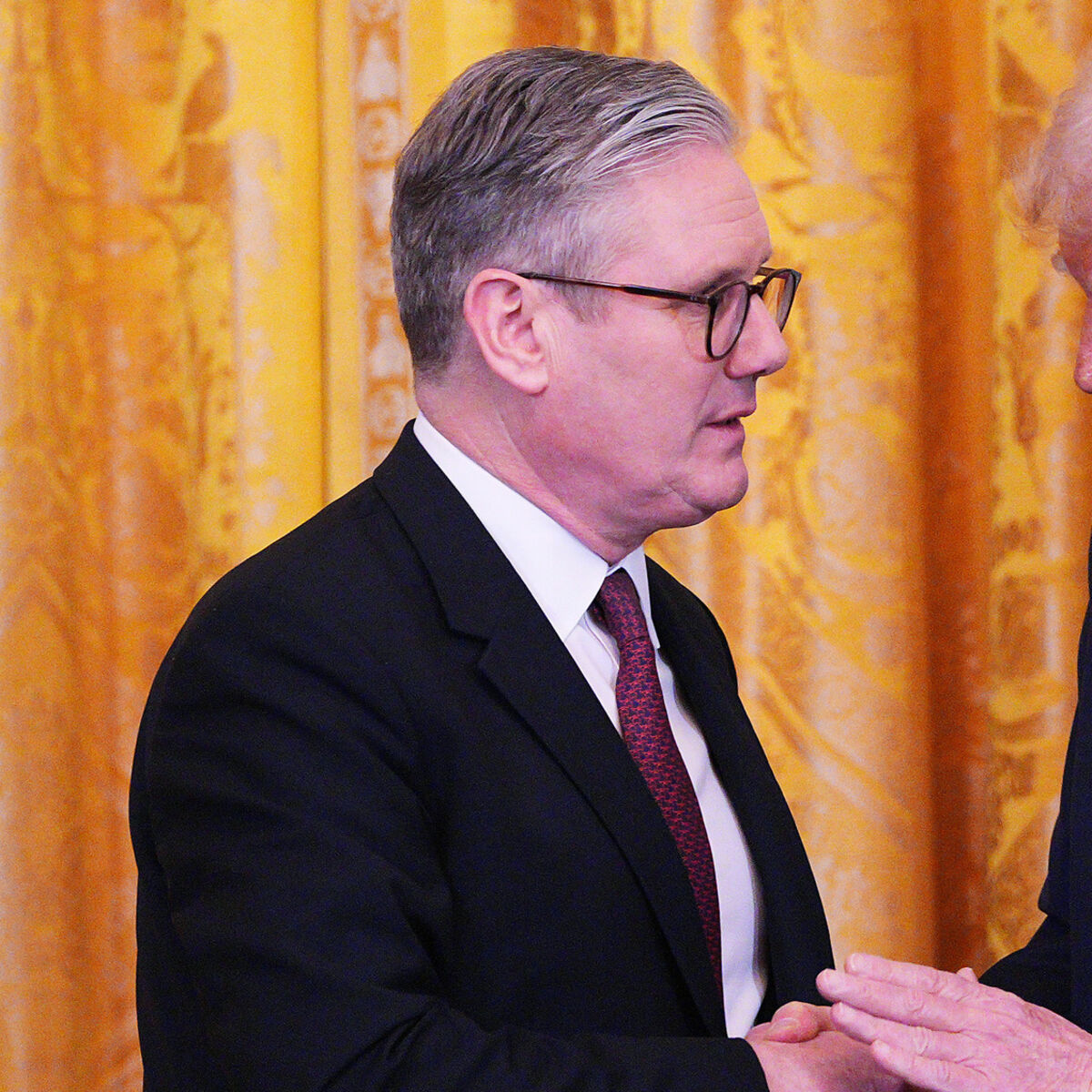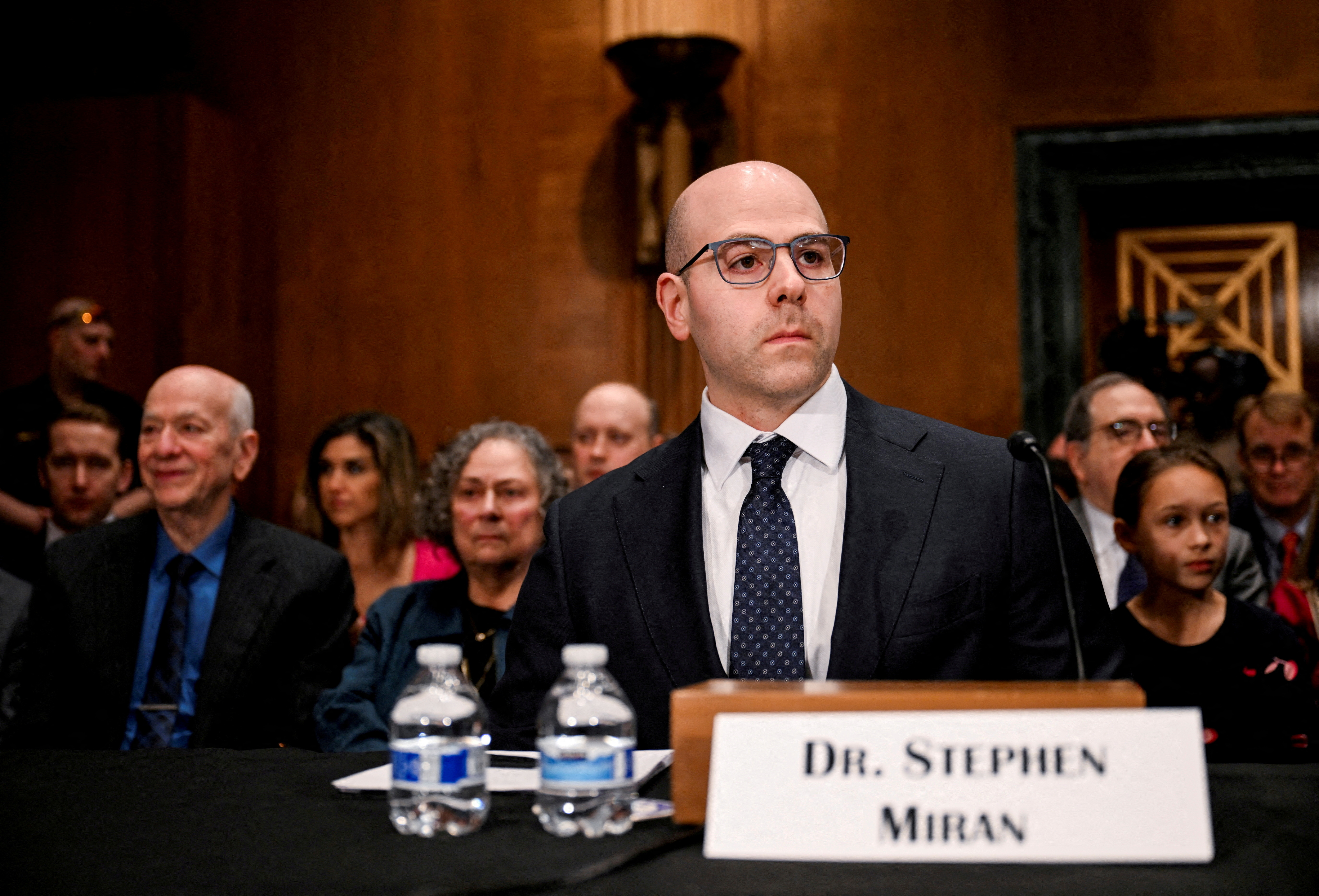Hit-Boy Unleashed: Free at Last from a Stifling 18-Year Contract, the Grammy-Winning Artist is Planning a Prolific Release Slate
By Mark Stefanos
Copyright laweekly

Hit-Boy can’t stop moving. When I caught up with the producer/rapper/musical tour de force in the lounge of his LA studio earlier this week, he never sat still once — whether he was hitting threes with a foam basketball on a pinned-up rim, sorting through groceries, or trying to find a working lighter.
When I followed him to the control room to watch him work, it was the same deal but turbocharged, clicking furiously over the track he was editing on his desktop, then jumping up and punching in vocals. As he’d play the track back for a listen, he would roll his blunt with the precision of someone assembling a microchip, never a movement or moment wasted. His physicality is a lot like his music — deliberate and forceful, meticulous and artful.
If Hit-Boy comes off like a man on a mission, it’s because now’s not the time to sit around. At 38, he’s shaped the sound of modern rap music and beyond, producing hits for Jay-Z, Kanye West, Drake, Kendrick, Nas, Rihanna, Beyoncé, and the list goes on, winning three Grammys along the way. But for nearly two decades, his career was shadowed by a publishing deal that began when he was just 19. That contract ended on July 1 of this year, releasing him from what he describes as a stifling constraint.
“I really feel like I got held back in a slingshot by God,” he says, “where He was like, let me just let you keep learning, keep stretching, keep burning, keep hurting, keep fucking fighting. And then when it’s time, I’m gonna let you out.”
This moment marks a turning point: free from the deal, he is channeling personal growth, family challenges and Southern California roots into a flurry of projects coming out over the next few months. When we talked, he had just gotten back to LA from New York, making a stop on the way back in Vegas for a studio session with some A-listers.
“I’m free now. So it is what it is,” he says, dismissing lingering resentment. “Now it’s like, you can’t trick me no more. You can’t fuck me over. I see shit with a bird’s eye view.”
Born Chauncey Hollis Jr. in a Whittier hospital, Hit-Boy spent his early years in Pasadena. Music was woven into his family’s fabric, particularly through his mother’s side. His grandmother, known as Mama Jean, managed his uncle Rodney B, a member of the R&B group Troop. She secured their deal with Atlantic Records in the 1980s through rigorous oversight. “She whipped him into shape,” Hit-Boy recalls. “She was the one who got them a record deal with Atlantic Records back in the day. She was strict. She would make them rehearse for hours, and if they mess up, make them do it again. She was on them heavy.”
The household echoed with Motown classics, Tevin Campbell, Mary J. Blige, Jodeci. “They just love soul music. Always playing Motown and shit. Always playing R&B from the 90s,” he says.
A family move to Fontana in the Inland Empire at 13 disrupted this world, leaving him isolated from childhood friends. “I was about 50 minutes to an hour away from all the people I went to school with from first grade to sixth grade. People that was real homies and shit. And I was sad for it, walking to school, fucking crying sometimes. Like, damn, we way the fuck out here. What is this?”
But after a while, he started getting used to it, and in the wider expanses of the I.E. came an opportunity. “I met the kid that put me on with the beat-making shit. He lived in Rialto at his apartment called the Meadowlands. My uncle knew somebody he knew, and they connected us. And he had the whole shit in his mom’s apartment: desktop computer with the CD burner, with the labeler, with the Acid Pro to record. That was our Pro Tools back in the day, Acid Pro. He had FL Studio — Fruity Loops. And we was making albums, making songs at like 15, 16.”
Captivated by FL Studio’s interface — “It look like Tetris” — he convinced his paternal grandmother to buy him a computer. “I’m putting FL on it illegally, downloaded it off Kazaa. And then I just kept having fun with the shit, recording songs and making beats. I just took off with it.”
The I.E. had a pulse that young Hit-Boy was tapping into. Teen nights at the all-ages club Gotham in San Bernardino became his lab. “I started going at 13. All the cool kids used to go up there. All the girls — that’s when I started seeing what music makes girls move, how to dress and all this shit. It was just like little kids in there really partying. And we was not even drunk at all, but we was in there partying like we was lit.”
By 16, the number of local artists he was producing for was stacking up. “I used to have this black wall in my room and a silver marker. People used to sign that shit. My whole wall was full of local artists.” That wall’s echo lives in his discography of over 500 credits, from Jay-Z and Kanye’s “Ni**as in Paris” to Nipsey Hussle’s “Racks in the Middle” — both of which he was awarded Grammys for.
But the road to those statues twisted through Atlanta and back. At 18, a connection he made with producer Polow da Don on MySpace promised an opportunity most teenagers dream of: “He’s more than a producer. He can help guide me through my career,” Hit-Boy remembers how it was presented to him. That summer, he moved to Atlanta with producer Chase N. Cashe, forming a team under Polow, then signed a publishing deal with Universal Music Publishing Group at age 19.
He returned to California in 2009, staying briefly with his mother in Fontana. A reconnection with Kanye West led to his 2011 breakthrough: producing “Ni**as in Paris” for Jay-Z and West’s Watch the Throne. The collaboration led to him signing to G.O.O.D. Music, which brought visibility but financial strain. Managed by Polow’s team, he paid them 20% and Kanye’s group took another 20%. “So 40% of all my money was gone. If you really look at it, I got to get 50 to tax it. So I was making like 10% of my money,” he notes.
But the glow-up was real. “Being around Kanye, I got a lot more eyes on me, a lot more attention, a lot more respect. And that’s what came with it. That’s what put me on that concept of, if you around a big brand, you automatically just get looked at as a higher level brand.”
The deal’s restrictions surfaced soon after. “Whatever language they had in there — they didn’t have to give me an advance. And there was a couple of things that made it impossible for me to get out of the deal,” Hit-Boy says. Four years in, frustration mounted. “It just felt like a dark cloud, man. It felt like I was truly stuck mentally and had those times where I was burnt out on this shit.”
Interscope Records president Jimmy Iovine offered him a label deal to develop his own acts, but Kanye sought involvement. Hit-Boy chose independence: “Jimmy was like, you can either keep being under this guy or you could go and really learn the business for yourself, and I’ll give you a couple million dollars to do that. And that’s what I did.”
He invested that advance at studios like Record Plant, Chalice, Glenwood Place, running up million-dollar budgets in studio time for him and his artists. “This shit was like going to college.” He moved into a condo near La Cienega Boulevard and Pico, which became a collaborative hub that devolved into excess. “All my homies started fucking trying to come live with me. It turned into a party house.” He learned the hard way — “Until I’m really where I want to be, it’s always going to be a struggle trying to help somebody else.”
Hit-Boy continued to work furiously the following years, producing hits for a list for artists across genres. Then in 2021, under Roc Nation management, he pushed for release from the Universal publishing deal. He wasn’t able to get out immediately, but with the help of Jay-Z, they were able to negotiate a four-year cap, which ended July 1, 2025. The wait built resolve, Hit-Boy says. “The last four years, I’ve just been getting myself together, getting prepared for this moment.”
As noted, he’s not one to wait around. Between 2020 and 2023, he produced six albums with Nas, earning him the Best Rap Album Grammy for King’s Disease.
Southern California runs deep in Hit-Boy’s identity, influencing his versatile production style — from West Coast grit to broader appeals. “That’s just in my DNA,” he says. “That’s just embedded in me, just to be attracted to gangsta music or West Coast music with the lingo and just the way we talk and all that.” Collaborations with local talents like Kendrick Lamar, Snoop Dogg and the late Nipsey Hussle reflect this affinity.
The Atlanta years honed his adaptability without diluting this foundation. Listeners often misplace his origins. “Some people’s like, ‘Yo, I thought you was from the East Coast or I thought you was from Atlanta.’ I be hearing that shit a lot.” He embraces it. “I always wanted to be more versatile than just known as just a West Coast producer. I just make what I make in a moment and keep it pushing.”
Still, the West has never left him. Today, it manifests in ties to Inland Empire artists, such as Spank Nitti, whose sharp wordplay captures the region’s humor and edge. “He from Hemet, California. Super dope MC. Got the craziest lingo. With these certain bars that he says, I’ll literally cry tears laughing. This shit is so witty, it’s so funny. It’s dark, but it’s humorous.” Their collab nods to the region’s great landmarks — “Going to the Cabazon. Just like, going to Ontario Mills and shit. Like just fly shit.”
A good example of this gritty humor, check out their recent collab track “Eat Couch.”
And to the coastal elites who turn their noses up at the I.E., don’t forget that the move inland is a quintessential SoCal story, straight out of Next Friday. “I literally bought my mom a house in Rancho Cucamonga when I got my first real check.”
Hit-Boy has so many projects in the pipeline, it’s hard to keep track. He bought a building that will serve as a hub for his creative agency — “film, photos, podcasts, studios, everything.” From there, he’ll also run a non-profit foundation he’s launching called The Next Hits, which will help underserved kids whose parents are incarcerated who need a creative outlet, “to put them on the business side, and also teach them how to engineer, produce, songwrite, whatever they want to do.”
This commitment aligns with his admiration for forward-thinking collectives like Kendrick Lamar’s pgLang. “Everything they do is grounded, it’s humble, but it’s still like a step above and they’re pushing this shit forward, visually, musically, presentation-wise,” Hit-Boy notes.
With his stifling deal behind him, Hit-Boy is entering his most musically active period with a slew of projects slated for release by the end of the year.
Leading off is Yeast Talking, a 22-track collaboration with Spank Nitti. October brings a soul-infused project with producer The Alchemist, emphasizing sampled breaks and chops. Accompanying it is a short film. Hit-Boy explains: “It was really just supposed to be a promo piece just to go along with the album, but it just came out so artsy and fly that we about to take the shit around the world. It’s like something that I feel like people need to see. Like some cult classic type shit. And I feel like it’s going to make people look at me and Alchemist in a whole new light.”
His solo effort, SFTWRE UPDTE, will follow. Inspired by therapy and family strains, it is introspective and focused. “I’ve been making that project for a little while,” he explains. The motivation for the project came from the realization that the generosity he was showing to those around him hasn’t always been appreciated. “That’s where the software update came from, full transparency, where it’s like, man, I gotta fucking focus on me.”
More will follow. “I got a whole ‘nother album ready too that I’m conceptualizing how I want to put the visuals together for and tell more of my story through it,” Hit-Boy says.
How does he keep all these projects straight? “Same way, I just go every day, man. I just put the effort in. Just leave it on the floor, man, like being in the gym.”
Personal cycles inform this drive. Hit-Boy’s father, Big Hit, has faced repeated incarcerations — a pattern spanning over 30 years. “He ain’t been out for more than a year since I was three years old,” he says. Efforts to support his father’s music career provided a brief reconnection, but a recent three-year sentence resumed the loop. “I just put all that time and effort into giving my dad a career and a life, and his mind just still wasn’t fully prepared to accept it.”
Fatherhood offers a contrast. He shares 50-50 custody with his five-year-old son, an arrangement Hit-Boy navigates amid challenges. But he’s effectively broken the generational cycle set forth by his own dad. “I just tell him I love him every day, man,” Hit-Boy says of his son. “I’m present, whatever he wanna do, I’m with it.” Whereas he’s had limited connection with his own father, Hit-Boy’s son is constantly with him, whether he’s just chilling in the studio with him or tagging along on red carpets.
Looking ahead, he senses flux in the industry. “Everything is just all over the place. Rap is kind of not on the charts at all no more. There’s a role for somebody to come through.” The role he sees for himself is innovation. “I think I’m about to do some shit that people never saw done — usher in a new energy.”
Success, for Hit-Boy, transcends metrics. It’s understood when he’s listening back to the tracks he’s produced in the car ride home after a session. “If I can’t stop playing the shit, that’s the real victory, every day. More than the money, more than everything,” he says. His musical progress is what fuels him: “Being able to just make the beats bend and move and do what I want them to do. That makes me want to make more music.”
In a shifting industry, his story resonates: from Southern California’s quiet corners to global stages, resilience produces something enduring.
As his new releases approach, and with an endless list of hits and accolades already under his belt, Hit-Boy stands liberated, reflective, ambitious, and on the verge of even more. “I’m about to make the biggest hits of my career right now. The sky’s the limit at this point.”



